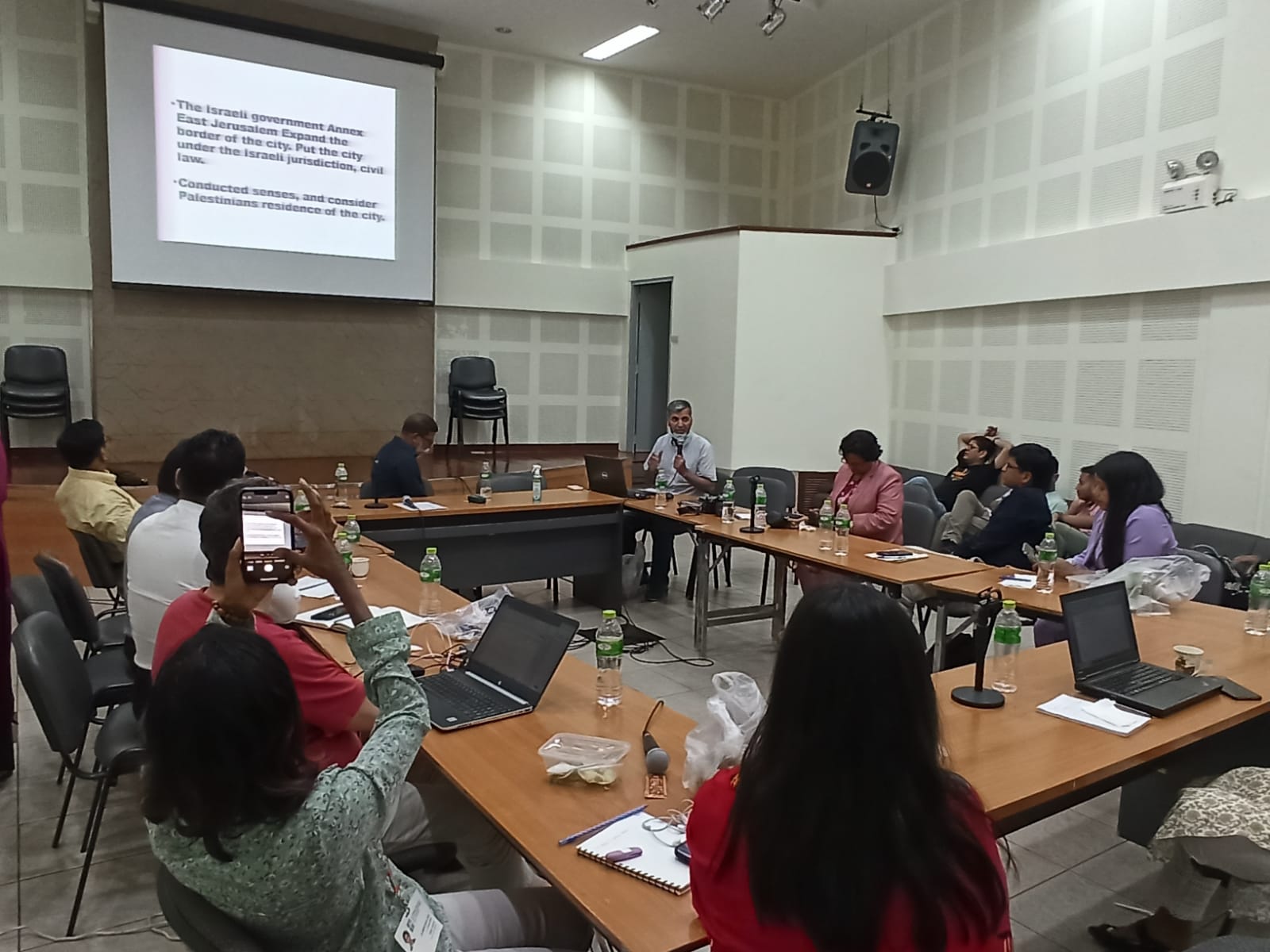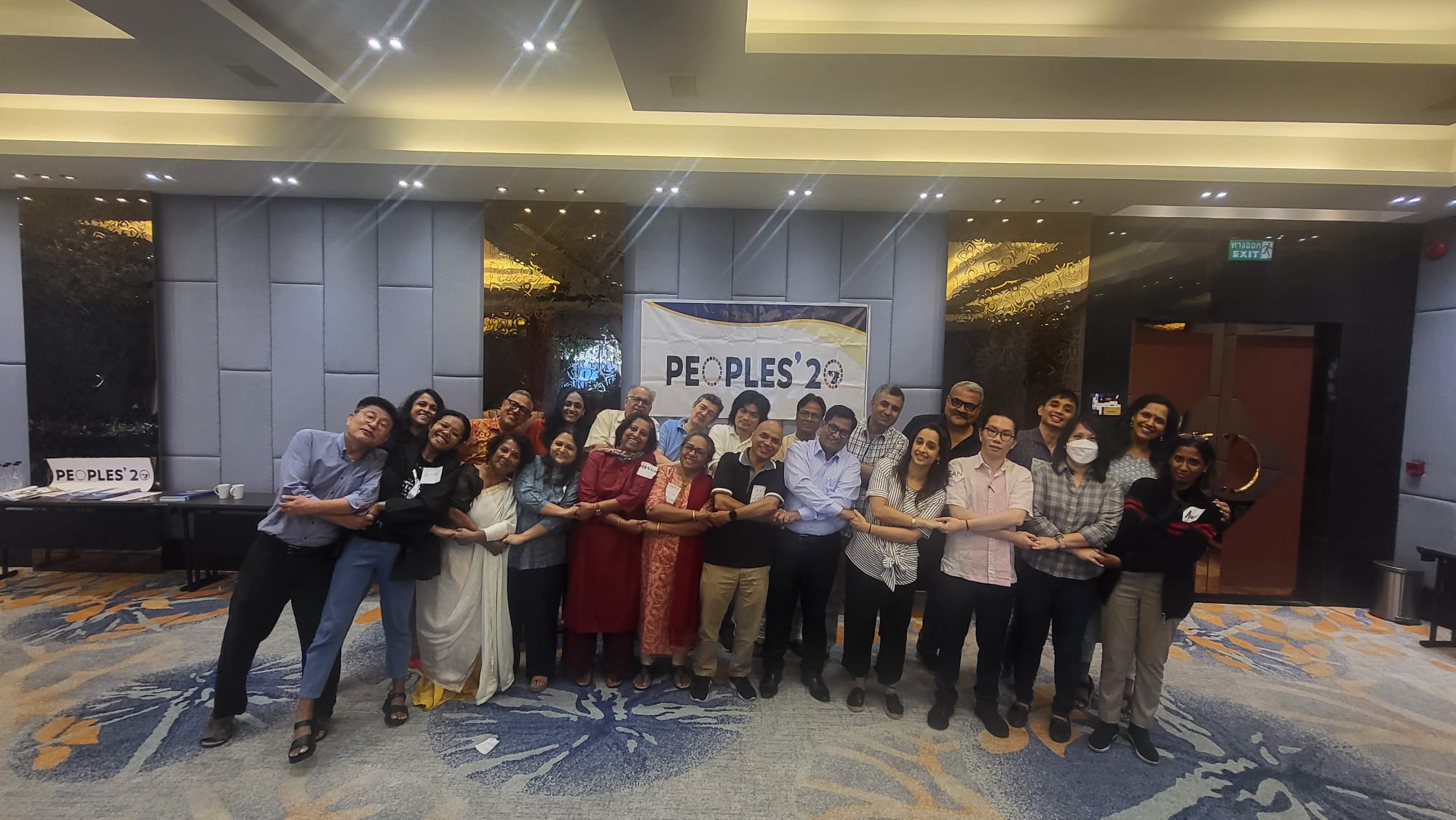Labour Axis and HIC, along with numerous Asian organisations and social movements working on habitat-related rights, are presently conducting a comprehensive mapping of Asian initiatives and actions. This mapping endeavour aims to establish sustained dialogue, networking, and collective action among those in Asia advocating for public and rental housing, land rights, urbanisation, gender justice, and a sustainable environment.
As part of this endeavour, Labour Axis and HIC Asia Programme Officer, Chinmayi Naik attended the Asia Pacific Social Forum Facilitation Committee (APSF-FC) meeting held in Bangkok, Thailand, from June 6 to 8, 2023. This meeting brought together 36 individuals from several Asian nations and France. Key topics ranged from preparing for the World Social Forum (WSF) 2024, the future structure of APSF, the Youth Intercontinental Forum, tackling caste/racial discrimination, to the APSF support mechanism. The discussions highlighted the necessity of housing rights and decent working conditions in advancing social and economic justice which was then added into one of the thematic areas of WSF as, Climate, Ecology, Just Transitions, Habitat and Sustainable Development.

HIC Asia Programme Officer, Chinmayi Naik emphasised the shared goals of the various organisations, shedding light on the extensive work being done in the areas of housing rights and working conditions. The inherent links between housing stability and broader socio-economic outcomes, as well as the impact of fair working conditions on economic equality, were brought into focus.
Before this, the Peoples’ 20 meeting was scheduled on 4th and 5th June 2023. It was attended with the intention aligning with the P20 process to influence G20 government policies by developing a strong people’s narrative. Here, the holistic social policy approach – integrating housing and labour rights – put forward by Labour Axis and HIC received significant support, demonstrating the need for their incorporation in the socio-economic discourse.
Reflecting on these meetings, it is evident that grassroots movements and civil society need to play a stronger role in policy-making. A collective and inclusive narrative acknowledging housing and labour rights as basic human rights is key to progressive policy-making.
 The meetings concluded with the agreement to establish stronger alliances to shape the policy narratives of the G20 and Asia-Pacific governments. An ongoing shared dialogue and coordinated action among the participants were determined as the future course.
The meetings concluded with the agreement to establish stronger alliances to shape the policy narratives of the G20 and Asia-Pacific governments. An ongoing shared dialogue and coordinated action among the participants were determined as the future course.
Next steps involve leveraging the momentum gained from these meetings. The connections made will be fortified, and joint initiatives will be developed with other organisations to amplify our shared goals. This will ensure that housing and labour rights remain a central focus in the discourse leading up to the next G20 summit and WSF 2024.
These meetings have strengthened our resolve to create a more equitable society, where housing and labour rights are recognised as fundamental to the overall development of any society. Building upon this resolve, Labour Axis and HIC will focus their efforts on furthering the objectives outlined in the meetings. The first priority is to complete the comprehensive mapping exercise of organisations and initiatives across Asia. This exercise will identify key actors and successful strategies in housing rights advocacy, thereby informing our collective efforts towards housing, land rights, urbanisation, gender justice, and environmental sustainability.
Moreover, we will invest in the consolidation and strengthening of networks formed at the APSF-FC and P20 meetings. Sustained dialogue and collaboration with these organisations will enable us to share knowledge, enhance collective impact, and coordinate actions effectively at both the regional and international levels. In the lead up to the next WSF 2024, we will strive to keep the focus on housing and labour rights. By leveraging our increased visibility and collective voice, we aim to ensure these issues are at the forefront of the policy-making discourse.